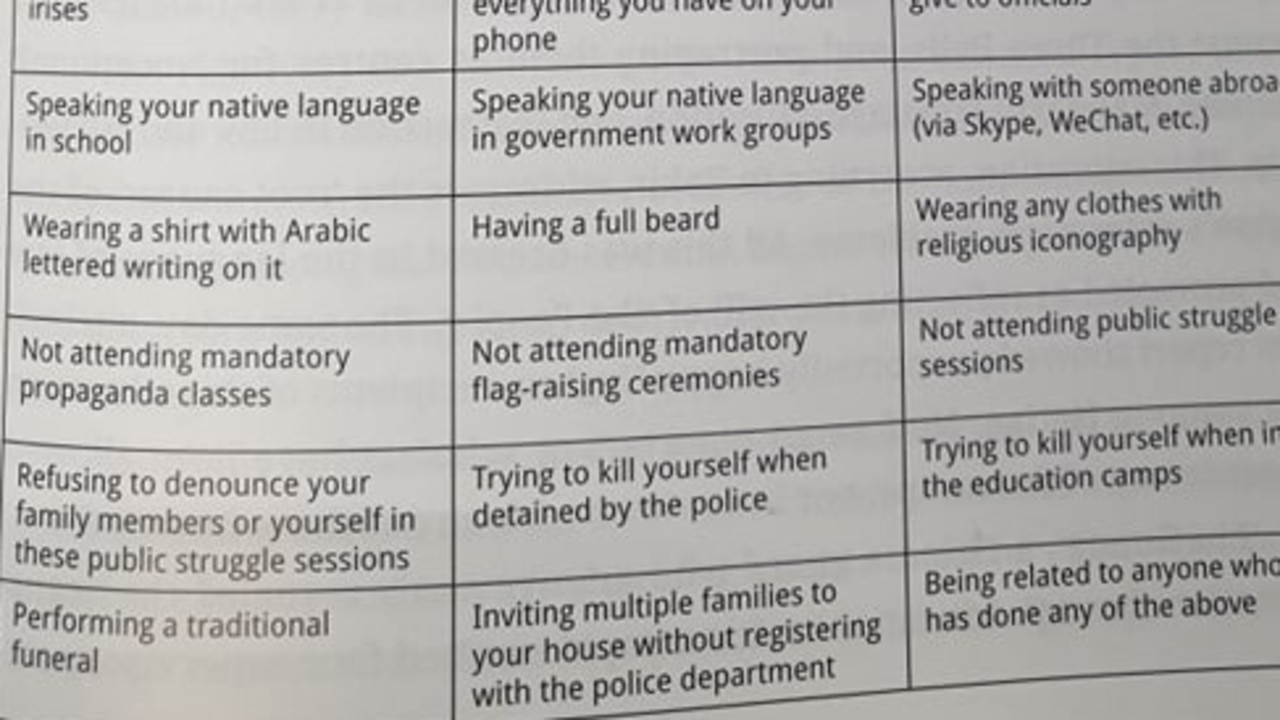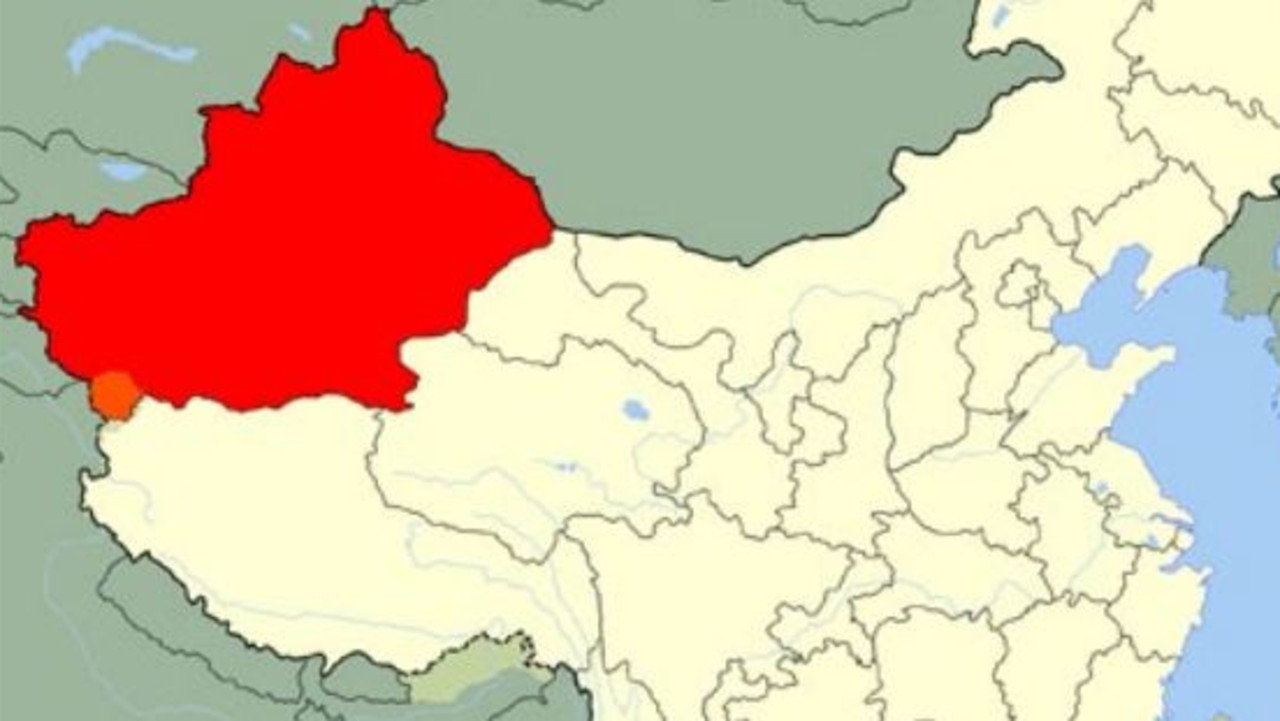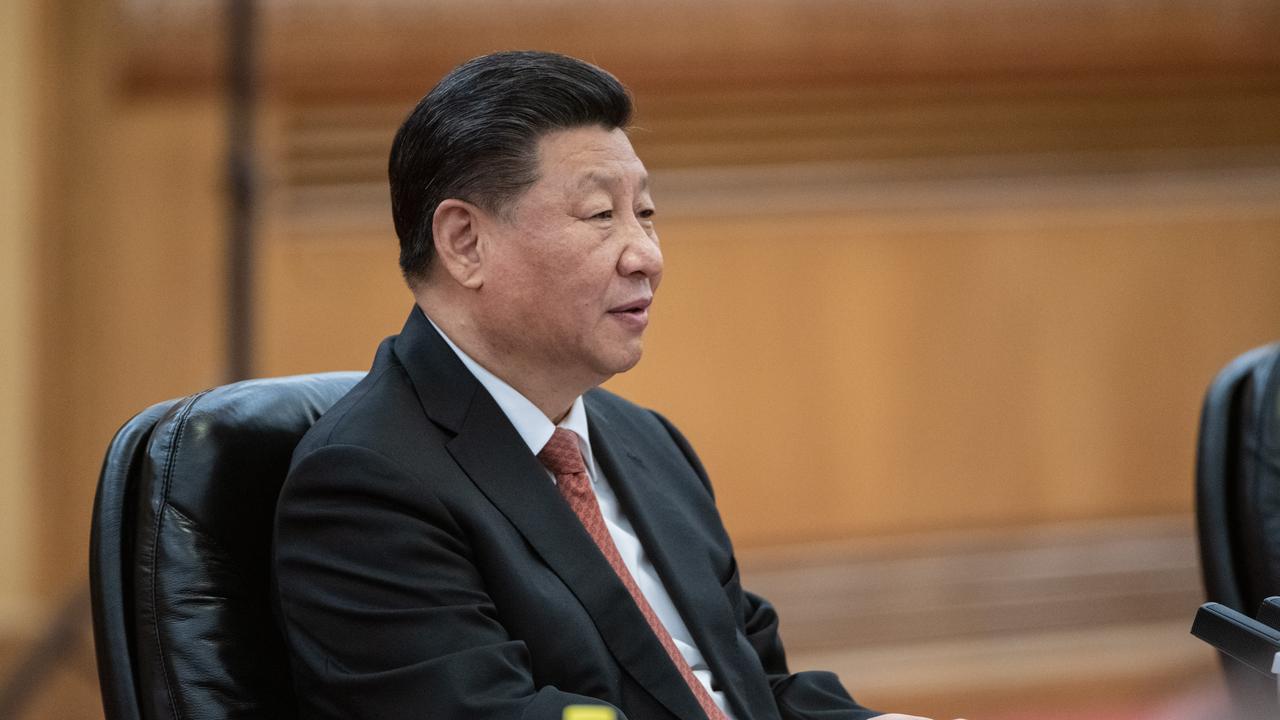Having a beard and owning a compass seen as ‘extremist tendencies’ in China
Owning a tent and eating breakfast too early are signs that you might be an extremist in China and could see you locked up indefinitely.
Acting sad in public might seem like a normal response when your parents die, but in China it could see you locked up in an “education centre” indefinitely.
It’s one of a total of 48 “suspicious signs” — including owning a compass, telling someone to stop smoking and eating breakfast too early — that could let Chinese officials know you’re an “extremist”.
A list of seemingly innocuous tendencies has been pulled together for a chapterin the Australian National University’s 2018 China Story Yearbook which casts a spotlight on the Asian nation’s disturbing crackdown on Muslims in its far west region of Xinjiang.
The United Nations says that between one and two million members of China’s Uyghur ethnic minority — the majority of whom practise Islam — have disappeared.
Dr Gerry Groot, Senior Lecturer in Chinese Studies at the University of Adelaide, told news.com.au many of these people have been sent to so-called “vocational-education facilities” and prisons following random police checks.
“A lot of these people will be stuck in there for years and be doing hard labour under the guise of education,” he said.

He said the “slow motion humanitarian diaster” happening in Xinjiang is a result of the Chinese Communist Party not knowing how to deal with the country’s religious minorities over many decades.
In his chapter for the Yearbook, he explains that state “encouragement” of China’s ethnic Han majority to Xinjiang and the rewarding of intermarriage over decades is dramatically reshaping the ethnic make-up of the region.

Uyghurs now make up just 46 per cent of the population in Xinjiang, where they were once a majority and a number of terrorist attacks committed by Uyghurs — including a mass rail station stabbing in 2014, killing 31 — and retaliation attacks on Chinese Muslims have inflamed tensions.
Ever since the September 11 attacks in 2001, Dr Groot says the Chinese government has sought to link any unrest among the Chinese Muslims with foreign radical Islamist movements.
He says this helps to explain why the controversial policy of internment of Chinese Muslims at such an alarming rate has domestic support.
“There’s zero interest against changing it within China, it probably has overwhelming support in so far as the average person knows what it’s about,” he said.
“There’s almost zero support for Uyghurs among the general population because the Communist Party and, in particular, (Chinese leader) Xi Jinping, have framed this existential crises.”
Not only that, he said that the instances of international condemnation have been few and far between — with prominent Islamic nations such as Pakistan and Saudi Arabia even supporting China’s actions.


He says the crackdown on attempts to “de-fang” religious minorities — including Christians — by the Communist party is an attempt to stop its regions forming their own identities.
At the heart of this fear is what happened to the former Soviet Union in the late 1980s when the nationalism of Eastern European countries pried the bloc apart.
“The fear of internal nationalism, splits or anything that happened within the Soviet Union has been a very powerful driver for policy in China and we’ve seen the extension to the policy to the demolition of mosques,” he said.
“The number of mosques being destroyed has increased.”
Religion has been seen as an external and destabilising force in China for many decades now.
Dr Groot says that a number of dissidents involved in the 1989 Tiananmen Square protests — in which thousands of protesters were killed — converted to Christianity and that, over the years, many of those pushing for political change have also found religion through their struggles.
“So, the party sees religion itself as part of the problem,” Dr Groot said.
“If you believe in god then god is above the party and that’s a problem and they have to be crushed. You can’t have a different moral vision, you can only have a supportive moral vision.”

FORTY-EIGHT SUSPICIOUS SIGNS OF ‘EXTREMISM’
The following reasons can be used as a trigger by Chinese Government officials to justify someone being sent to an education camp.
Owning a tent
Telling others not to swear
Speaking with someone who has travelled abroad
Owning welding equipment
Telling others not to sin
Owning extra food
Eating breakfast before the sun comes up
Merely knowing someone who has travelled abroad
Owning a compass
Arguing with an official
Publicly stating that China is inferior to some other country
Owning multiple knives
Sending a petition that complains about local officials
Having too many children
Abstaining from alcohol
Not allowing officials to sleep in your bed, eat your food, and live in your house
Having a VPN
Abstaining from cigarettes
Not having your government ID on your person
Having WhatsApp
Wailing, publicly grieving, or otherwise acting sad when your parents die
Not letting officials take your DNA
Watching a video filmed abroad
Wearing a scarf in the presence of the Chinese flag
Wearing a hijab (if you are under 45)
Going to a mosque
Praying
Fasting
Listening to a religious lecture
Not letting officials scan your irises
Not letting officials download everything you have on your phone
Not making voice recordings to give to officials
Speaking your native language in school
Speaking your native language in government work groups
Speaking with someone abroad (via Skype, WeChat, etc.)
Wearing a shirt with Arabic lettered writing on it
Having a full beard
Wearing any clothes with religious iconography
Not attending mandatory propaganda classes
Not attending mandatory flag-raising ceremonies
Not attending public struggle sessions (the public humiliation of political rivals)
Refusing to denounce your family members or yourself in these public struggle sessions
Trying to kill yourself when detained by the police
Trying to kill yourself when in the education camps
Performing a traditional funeral
Inviting multiple families to your house without registering with the police department
Being related to anyone who has done any of the above
You can read or order the China Story Yearbook online.




